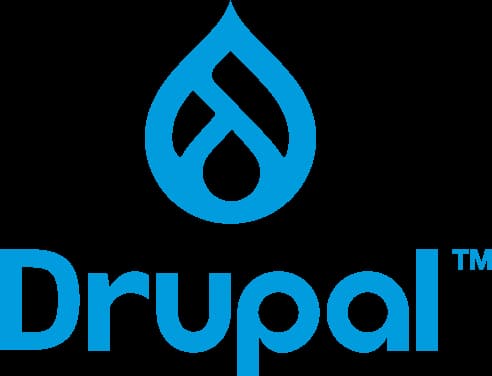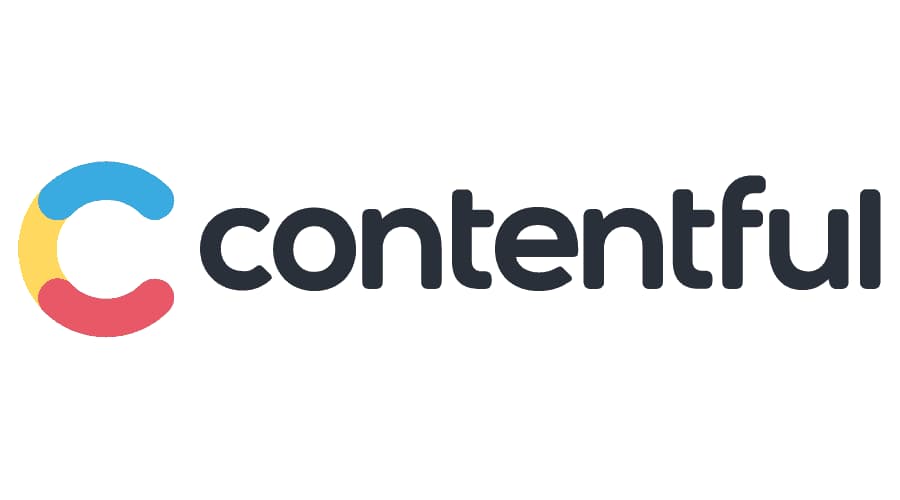
In today’s digital landscape, a Content Management System (CMS) stands as a fundamental pillar for businesses seeking to establish and maintain an effective online presence. A CMS is a comprehensive software application that enables users to create, manage, and organize digital content effortlessly. From website pages and blog posts to multimedia elements and user interactions, a robust CMS streamlines the entire process. This ensures that your digital footprint remains cohesive, dynamic, and easily navigable. Your CMS choice is crucial, shaping brand image, enhancing user experience, and impacting company success as the online gateway. It is more than just a tool; it is a strategic asset that empowers your team to convey your message effectively and engage with your audience in a meaningful way.
Navigating the diverse landscape of CMS options requires a nuanced understanding of the various types available and their unique characteristics. Open-source CMS like WordPress and Joomla offer cost-effective solutions and benefit from extensive communities supporting ongoing development and support. Proprietary CMS like Adobe Experience Manager and Sitecore offer advanced features and unparalleled customization, appealing to enterprises with specific needs. Headless CMS, such as Contentful and Strapi, prioritize content delivery, separating frontend and backend for seamless integration across platforms. Understanding the distinctions among these types ensures that you make a choice aligned with your business goals, scalability requirements, and technological preferences.
Things to Consider When Choosing a Content Management System
When choosing a CMS, thorough evaluation of budgets, flexibility, and scalability is crucial for selecting the most suitable option. While initial costs are often at the forefront of considerations, it is equally crucial to account for ongoing expenses associated with maintenance, updates, and potential upgrades. The flexibility of a CMS determines its adaptability to your business needs, with open-source options often excelling in this regard due to their extensive customization capabilities.
Scalability is crucial, ensuring your CMS can handle content, user base, and functionality growth as your business evolves. Additionally, assessing the user-friendliness of a CMS is vital; an intuitive interface can significantly reduce the learning curve for your team, enhancing efficiency and optimizing the content creation and management process. Balancing these considerations will lead to a well-informed decision that aligns with your company’s unique requirements and growth trajectory.
Popular CMS Options
WordPress

Used by 45.8% of all websites on the internet in 2023 and by 65.2% of all websites that use a CMS. It is known for its user-friendly interface and extensive customization options. It powers millions of websites worldwide, ranging from personal blogs to large corporate portals. With its intuitive dashboard and vast library of plugins and themes, WordPress enables users to create and manage websites with ease.
Pros: WordPress stands out for its unparalleled user-friendliness, making it accessible to users of all skill levels. Its intuitive interface simplifies content creation and management tasks, empowering users to build and update websites with ease. Moreover, the vast plugin and theme library offers limitless customization, letting users tailor their sites precisely to their needs. The robust community surrounding WordPress offers abundant resources, including forums, tutorials, and documentation, ensuring that users can readily find assistance and solutions to any challenges they encounter.
Cons: Despite its flexibility, WordPress can become susceptible to performance issues when overloaded with plugins or complex themes. Regular updates to plugins, themes, and core software can become burdensome, necessitating constant maintenance for security and stability. Additionally, while WordPress’s user-friendly interface caters to beginners, deeper customization often necessitates knowledge of coding languages like HTML, CSS, and PHP, presenting a learning curve for less tech-savvy users.
Drupal

Drupal is a powerful open-source CMS renowned for its flexibility and scalability. Used by companies like Tesla and NASA, it is favored by developers and large organizations for its ability to handle complex websites and extensive content management needs. With its robust architecture and comprehensive suite of features, Drupal offers unparalleled control over content creation, user permissions, and workflow management.
Pros: Drupal’s strength lies in its unparalleled flexibility and scalability, making it a preferred choice for building highly customized and feature-rich websites. Its robust architecture supports complex web applications, especially suited for large organizations and enterprises with diverse content management needs. Drupal provides unmatched content governance and access control through robust user permission settings and workflow management, ensuring content security.
Cons: Despite its power, Drupal’s learning curve can be steep, requiring a significant investment of time and resources to master. The ecosystem of modules and themes, while extensive, may not match the breadth and depth of options available in other CMS platforms like WordPress. As a result, customization may require more technical expertise, limiting accessibility for less experienced users.
HubSpot

HubSpot is an all-in-one marketing and sales platform that includes a content management system (CMS) among its suite of tools. With a variety of customers ranging from health companies such as Talkspace to entertainment companies such as SoundCloud, HubSpot shows off its range. It is designed to streamline inbound marketing efforts, enabling businesses to attract, engage, and delight customers through personalized content, automated workflows, and data-driven insights.
Pros: HubSpot’s integrated suite of marketing and sales tools provides a comprehensive solution for inbound marketing efforts, streamlining the management of leads, campaigns, and customer interactions. Its intuitive interface and robust analytics empower users to create targeted marketing campaigns, personalized content, and automated workflows effectively. Moreover, HubSpot seamlessly integrates with marketing platforms and CRMs, enhancing usability and enabling businesses to leverage existing tools efficiently.
Cons: HubSpot’s pricing model may pose a barrier to entry for small businesses and startups, particularly for access to advanced features and functionalities. HubSpot’s CMS provides templates and customization, but its flexibility may seem limited compared to standalone platforms like WordPress or Drupal. Furthermore, relying heavily on HubSpot’s ecosystem may lead to vendor lock-in, limiting flexibility and scalability in the long term.
Magento

Magento is a leading e-commerce platform renowned for its robust features and scalability. It powers thousands of online stores worldwide, ranging from small businesses to multinational corporations like Nike or Ford. Magento’s flexibility and customization empower businesses to craft unique, immersive shopping experiences for their customers with extensive options.
Pros: Magento’s specialization in e-commerce makes it a powerful platform for building online stores with extensive product catalogs, complex pricing structures, and sophisticated checkout processes. It offers inventory, order, and customer management, equipping businesses to deliver seamless shopping experiences with its robust feature set. Magento’s open-source nature and vast extension marketplace offer unmatched customization, empowering businesses to create unique online storefronts.
Cons: Magento’s complexity can intimidate novices, demanding a steep learning curve to navigate its intricate settings and configurations effectively. The platform’s resource-intensive nature can also lead to higher hosting costs, particularly for large-scale e-commerce websites with high traffic volumes. Magento’s open-source edition offers a strong foundation for e-commerce but advanced features like cloud hosting demand substantial investment.
Contenful

Contentful
Contentful is a headless content management system (CMS) that offers unparalleled flexibility in content creation and delivery. From hosting audiobooks at Audible to promoting food at KFC and selling cars at BMW, Contentful demonstrates its versatility. Designed to empower businesses, it delivers consistent, engaging content experiences across platforms and devices, effectively reaching target audiences.
Pros: Contentful’s headless CMS architecture offers unparalleled flexibility in content creation and delivery, enabling businesses to deliver consistent and engaging content experiences across various platforms and devices. Its API-first approach enables seamless integration, streamlining content management workflows and empowering developers to create custom solutions. Contentful excels in managing complex content types and orchestrating omnichannel strategies, ensuring organized, scalable, and future-proof content.
Cons: Contentful’s pricing model, which is based on usage and content volume, may be prohibitive for some users, particularly those with high content volume or unpredictable traffic patterns. Contentful’s headless architecture offers flexibility but might need more development effort compared to traditional CMS platforms. Users lacking web development knowledge may encounter a steep learning curve when using Contentful.
Making The Decision
Selecting the right CMS for your company is a decision that demands consideration and understanding of your business’s unique needs. As you navigate through the plethora of options available, it’s crucial to strike a balance between features, costs, and scalability. A CMS isn’t merely a tool to manage content; it’s an integral part of your digital strategy. Picking a CMS shapes how you present your brand to the world.
Beyond the factors mentioned earlier, it’s essential to consider the specific requirements of your industry. If your focus is on e-commerce, platforms like Magento might be better suited, providing specialized features tailored to online retail. Similarly, if your business relies heavily on marketing automation, an all-in-one solution like HubSpot CMS can streamline your operations.
Engage your team in the decision-making process, understanding their comfort levels and requirements. A user-friendly CMS can significantly impact productivity and content creation efficiency. Likewise, assess the level of training required for your team to harness the full potential of the CMS. The goal is to meet current needs and to future-proof, ensuring that your chosen CMS can evolve with your business.
In conclusion, the importance of choosing the right CMS cannot be overstated. It’s both a technological and strategic choice affecting audience connection, content management, and adaptation to digital changes. Consider factors outlined here and your business needs to make an informed decision driving your company toward digital success. Remember, a well-chosen CMS is not just a tool; it’s a cornerstone for building a robust and dynamic online presence.


